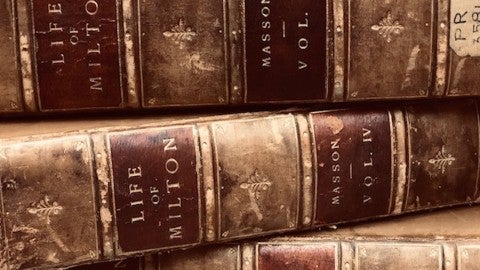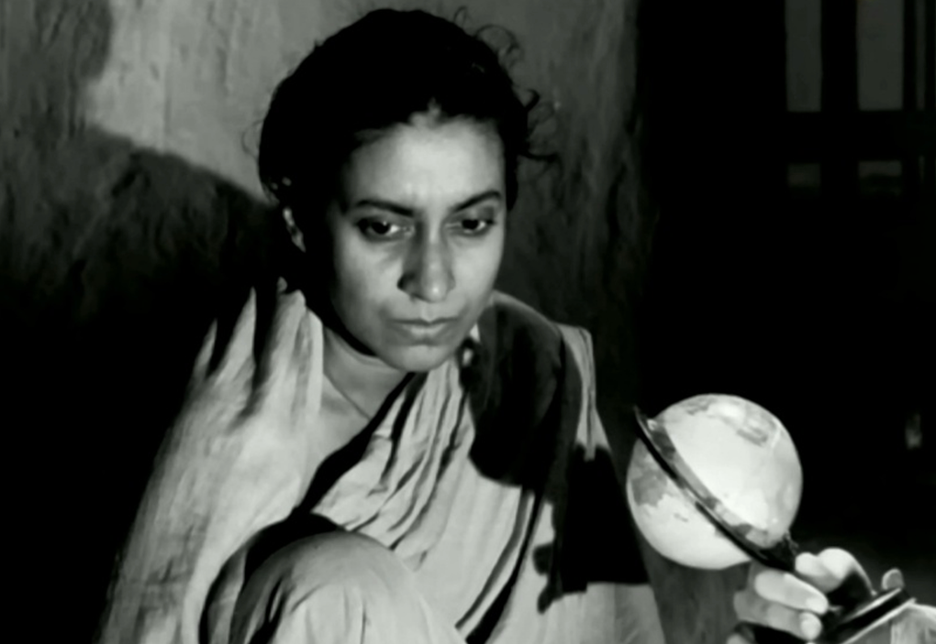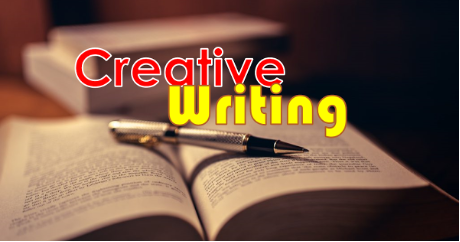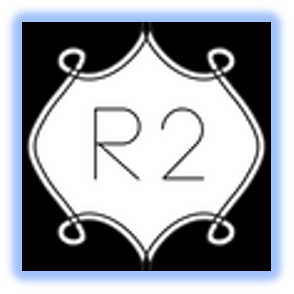 ENGL 114: Intro to Literary Editing & Publishing/Rice Review
ENGL 114: Intro to Literary Editing & Publishing/Rice Review
Tuesday 6:30-9:20 p.m. CRN: 22703
Instructor: Ian Schimmel
Taught in the spring semester, Literary Editing & Publishing/The Rice Review is the second course recommended to students desiring practical skills in the fields of literary editing and publishing. Experiential in nature, this class engages students in the real considerations and hands-on experience of publishing Rice’s nationally award-winning undergraduate literary journal, The Rice Review. Students will participate in weekly editorial meetings to read and discuss the merits of undergraduate submissions across literature’s three main genres: poetry, fiction, and creative non-fiction.
ENGL 113 is a prerequisite or permission of the instructor is required to register for this course
Course counts towards the English Creative Writing Major Concentration (ECRW) and the Minor in Creative Writing (CREW). Please reach out to ianschimmel@rice.edu with inquiries and to get permission to add this course.
Satisfies:
English Creative Writing Concentration (ECRW)
Creative Writing Minor (CREW)
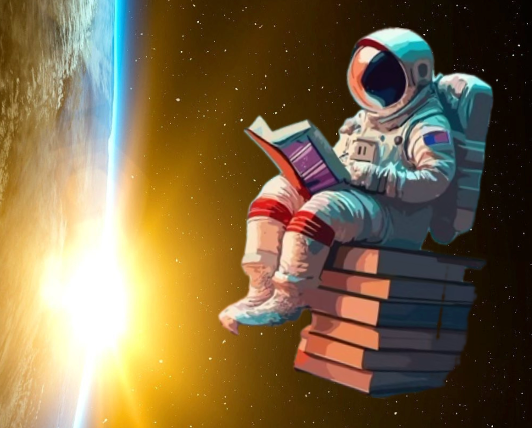 ENGL 199*: Outer Space and the Humanities - Literature, Culture and the Arts from Galileo to NASA (New Course - Open to all students, D1 approved and approved for STS Minor (Science & Technology Studies)
ENGL 199*: Outer Space and the Humanities - Literature, Culture and the Arts from Galileo to NASA (New Course - Open to all students, D1 approved and approved for STS Minor (Science & Technology Studies)
Monday, Wednesday 8:30-9:45 a.m. CRN: 24290
Instructor: Alexander Regier
Space – including Outer Space– is all around us: we inhabit it, travel through it, explore it, write about it, legislate it, share it, fight over it, and are endlessly fascinated by it. Consider the Political and Corporate Space Races, Black Science Fiction, Space and Race, Space Tourism, Space and Religion, Space and Ecology, Space Trash, Space Law, amongst many other topics. In this course we will discover how these topics of Outer Space connect with the imaginative and creative arts, especially in literature, arts, film and culture. The course is open to all students.
Satisfies:
*D1
Science and Technology Studies: Approved for STS minor
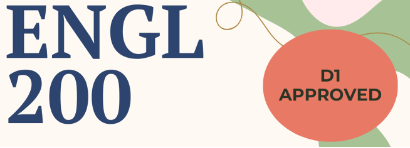 ENGL 200*: Gateways to Literary Study (2 sections offered)
ENGL 200*: Gateways to Literary Study (2 sections offered)
Tuesday, Thursday 10:50 a.m.-12:05 p.m. CRN: 20144
Instructor: José Aranda, Jr.
Tuesday, Thursday 2:30-3:45 p.m. CRN: 21415
Instructor: Benjamin Parris
This course is designed for and required of all prospective English majors, and should be taken in the first or sophomore year. Emphasis is on close reading, literary interpretation, and critical writing. Attention is paid to the major genres (poetry, drama, and fiction) across a range of historical periods. Open to all students with priority to declared majors and minors.
Note to all current and potential English majors/minors: Due to the popularity of ENGL 200, if the section of ENGL 200 you want appears to be full, please contact the instructor to receive a "special registration/override” via ESTHER.
Satisfies:
*D1
English major core requirement (ENGL): Training the Imagination
English minor core requirement (ENGM): Training the Imagination
English Creative Writing concentration core requirement (ECRW): Training the Imagination
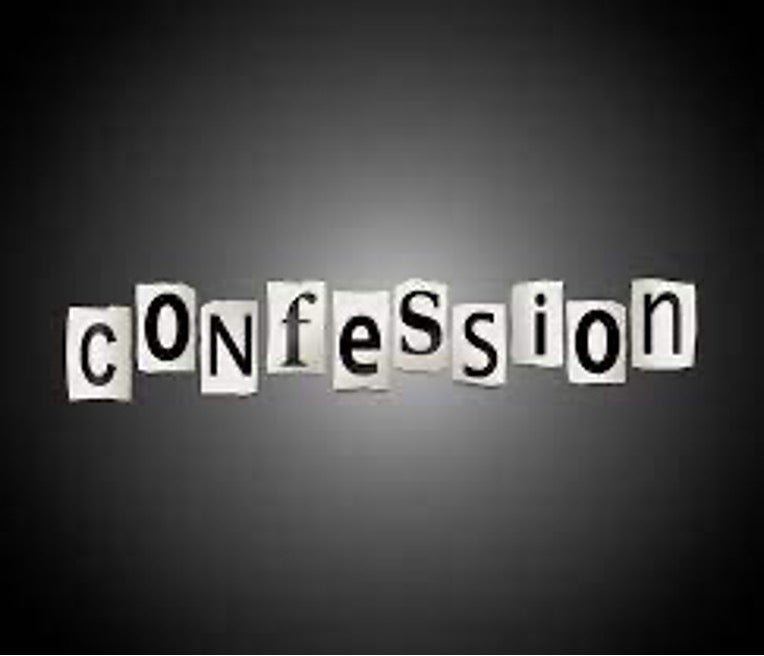 ENGL 203.001: Topics in Creative Writing - Confessional Writing
ENGL 203.001: Topics in Creative Writing - Confessional Writing
Wednesday 12:00-2:30 p.m. CRN: 22994
Instructor: Andrea Bajani
An introductory, variable topics workshop in creative writing that asks students to work in multiple genres (fiction, non-fiction, poetry, etc.) Topic for Spring 2026 will be “Confessional Writing”. Class is open to all Rice students.
Satisfies:
English Creative Writing Concentration (ECRW)
Creative Writing Minor (CREW)
 ENGL 203.003*: Topics in Creative Writing - Art Writing
ENGL 203.003*: Topics in Creative Writing - Art Writing
Monday 4:00-6:30 p.m. CRN: 24293
Instructor: Rosa Boshier González
Rosa Boshier González's website
An introductory, variable topics workshop in creative writing that asks students to work in multiple genres (fiction, non-fiction, poetry, etc.) Topic for Spring 2026 will be “Art Writing”. Class is open to all Rice students.
Satisfies:
English Creative Writing Concentration (ECRW)
Creative Writing Minor (CREW)
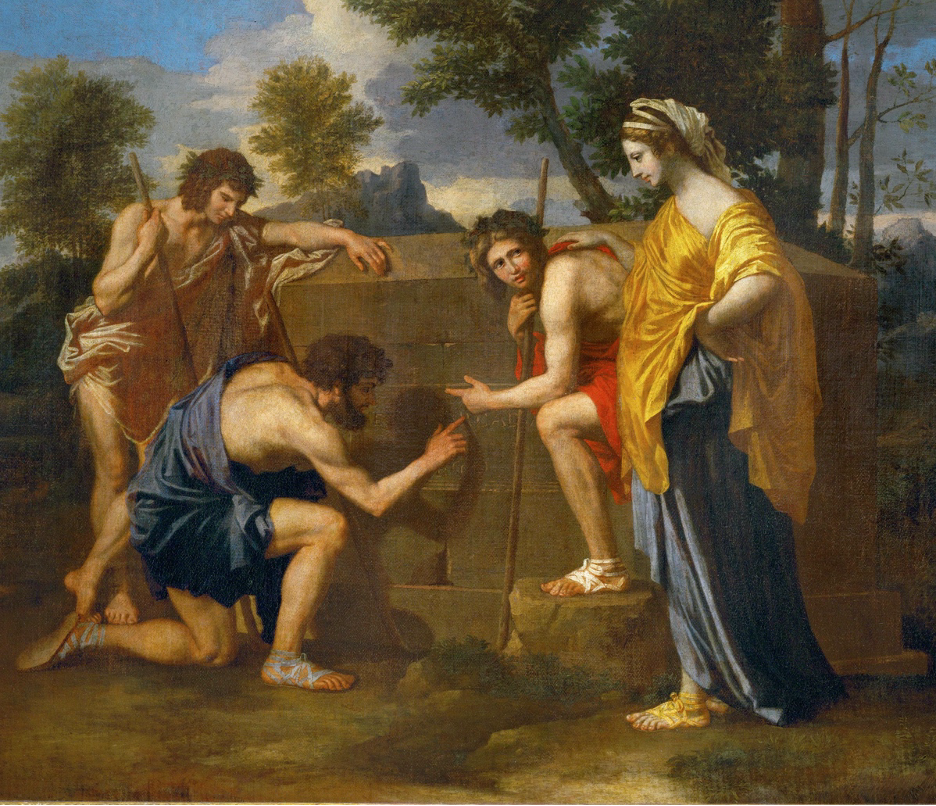 ENGL 210*: Beginnings: British Literature to 1800
ENGL 210*: Beginnings: British Literature to 1800
Tuesday, Thursday 8:00-9:15 a.m. CRN: 23560
Instructor: Evan Horne
"Beginnings” is a course about the emergence and development of English Literature. We will study the major movements and periods of English literary history from the Middle Ages through the British Enlightenment, engaging such major authors as Chaucer, Spenser, Shakespeare, Milton, Pope, and Wollstonecraft. By the end of the semester, students will be equipped to critically consider this very traditional narrative of literary history and its periodization with reference both to its enduring value and the places where the narrative doesn’t quite hold together. We will be equally concerned with questions such as “What has previously been thought about the English literary past?” as we will be with “What new ways of thinking about this past can be thought of now?” With the reputation of the “canon” and its hold on literary studies becoming more and more tenuous, we will use this opportunity to both learn what this canon looks like as well as evaluate its place in literary study going forward.
Satisfies:
*D1
English major core requirement (ENGL): Historical Foundations - periods before 1800
English minor core requirement (ENGM): Historical Foundations - periods before 1800
English major specialization: Literature & Literary History (LLH)
 ENGL 211*: British Literature - Romanticism to 20th Century
ENGL 211*: British Literature - Romanticism to 20th Century
Tuesday, Thursday 8:00-9:15 a.m. CRN: 23900
Instructor: Huw Edwardes-Evans
Moving from Romanticism to Modernism, this class will read a range of poetry and prose written in Britain and its empire. We will ask how literature has shaped the questions of identify, belonging, and expansion that we continue to grapple with today. Open to all students, this course meets the D1 requirement.
Satisfies:
*D1
English major core requirement (ENGL): Historical Foundations - periods before 1900
English minor core requirement (ENGM): Historical Foundations - periods before 1900
English major specialization: Literature & Literary History (LLH)
ENGL 222*: The World and South Asia
Monday, Wednesday, Friday 10:00-10:50 a.m. CRN: 25495
Instructor: Agnibha Banerjee
The course examines the interconnected and co-creative relationship between "South Asia" and the "World." Focusing primarily on literary texts, we will examine social, cultural, historical, and political dimensions of this relationship. Key topics of discussion will include colonialism, anti-colonial movements, narratives of nationhood, diasporic movements, and conceptions of the global. No prior knowledge of South Asia is required for this course. Open to all students.
Satisfies:
*D1; Analyzing Diversity (AD)
English major core requirement (ENGL): Diverse Traditions (Race, Postcolonial & Gender (RPG)
English minor core requirement (ENGM): Diverse Traditions (Race, Postcolonial & Gender (RPG)
English major specializations: Culture & Social Change (CSC); Literature & Literary History (LLH)
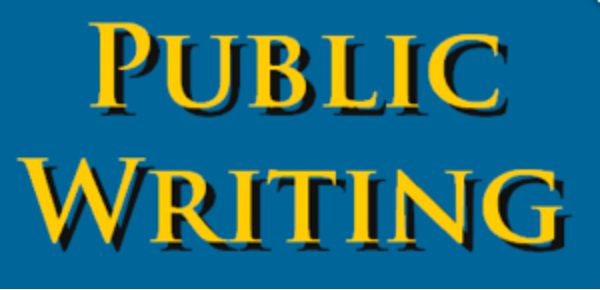 ENGL 240*: Writing on and About Poetry - A Seminar in Public-Facing Writing
ENGL 240*: Writing on and About Poetry - A Seminar in Public-Facing Writing
Thursday 2:30-5:20 p.m. CRN: 25682
Instructor: Sarah Ellenzweig
This is a public-facing writing/workshop class that focuses on poetry: what it is; how we read it; and why it matters- both historically and today. No prior experience with poetry or with public-facing writing is required, just openness, interest, and curiosity. Students will read a range of poems and poets from different pasts and presents, honing their interpretive sensitivity and examining poetry’s enduring capacity to move, fascinate, amaze, and incite. Students will come away from the workshop with greater confidence in reading poems and greater attunement to the subtleties of literary language and the pleasures of poetic form. Most importantly, students will gain the craft skills needed to write about poetry for a generally educated audience. In the process, the course will ask students to think in meaningful and rigorous ways about what writing for a “public” audience requires–about how effectively to convey some of the specialized academic knowledge they are acquiring at Rice to readers outside of their academic in-group: to online and published media, maybe prospective employers, even family and friends (for example). Students work together, alternately as authors and editors, on six short-form writing assignments, including reviews, poet profiles, and poem deep-dives (think LitHub, The Guardian “Poem of the Week,” Medium, The New York Times “Close Read.”) The assignments are collaborative and aimed at refining and elevating student prose through peer editing and in-class workshopping.
Satisfies:
*D1
English major core requirement (ENGL): Historical Foundations - periods before 1900
English minor core requirement (ENGM): Historical Foundations - periods before 1900
English major specialization: Literature & Literary History (LLH)
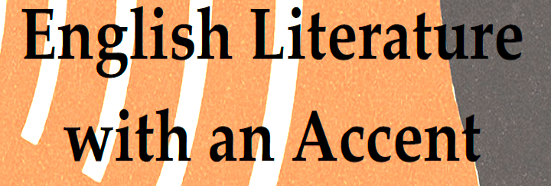 ENGL 253*: Literature with an Accent
ENGL 253*: Literature with an Accent
Wednesday 4:00-6:30 p.m. CRN: 24295
Instructor: Ragini Tharoor Srinivasan
This class explores voice and accent in English literature and cultural production, including podcasts, audiobooks, film, and television. Topics include race and voice (e.g. brown voice); the cybernetic voices of virtual assistants like Siri; the call center; and forensic listening. Everyone has an accent, but some are heard as "neutral" and others as markers of difference. This has serious implications: accent discrimination costs jobs, housing applications, and asylum claims. Do literary texts have accents, like people do? Students will gain understanding of the politics of accent and voice, while learning to use their accented voices to produce close, critical readings. Open to all students!
Satisfies:
*D1
English major core requirement (ENGL): Diverse Traditions (Race, Postcolonial & Gender (RPG)
English minor core requirement (ENGM): Diverse Traditions (Race, Postcolonial & Gender (RPG)
English major specialization: Visual & Comparative Media (VCM)
 ENGL 260*: What is American Literature?
ENGL 260*: What is American Literature?
Tuesday, Thursday 1:00-2:15 p.m. CRN: 23562
Instructor: Clinton Williamson
This course will survey a diverse selection of major and minor works of U.S. fiction and poetry, from the 17th century to the 21st century, in order to investigate how the cultural traditions of American literature can shed new light on the major contradictions and antagonisms of American life in our present.
Satisfies:
*D1
English major specialization: Literature & Literary History (LLH)
 ENGL 270*: Aspects of Modern Literature (canceled)
ENGL 270*: Aspects of Modern Literature (canceled)
Friday 12:00-2:30 p.m.
Lunchtime seminar open to all - No prerequisites
Instructor: Lindsay Graham
An introduction to modern/postmodern culture that may include readings of novels, plays, short stories, poems, psychoanalytic theory, and art criticism/philosophy. The emphasis is on reading and interpreting different kinds of texts in broad cultural contexts. Course is open to all Rice students and is approved for D1.
Satisfies:
*D1
 ENGL 271*: Black Literary Experimentation: Crazy; Scary; Spooky
ENGL 271*: Black Literary Experimentation: Crazy; Scary; Spooky
Monday, Wednesday 2:00-3:15 p.m. CRN: 24297
Instructor: Eve Dunbar
This course will approach contemporary African American literature through various literary genres (e.g., horror, satire, comedy, futurism, absurdity, etc.) to explore how genre shapes constructions of blackness and vice versa.
Satisfies:
*D1
English major core requirement (ENGL): Diverse Traditions (Race, Postcolonial & Gender (RPG)
English minor core requirement (ENGM): Diverse Traditions (Race, Postcolonial & Gender (RPG)
English major specializations: Culture & Social Change (CSC)
 ENGL 272*: Literature & Medicine (cross-list MDHM 272)
ENGL 272*: Literature & Medicine (cross-list MDHM 272)
Monday, Wednesday, Friday 10:00-10:50 a.m.
Monday, Wednesday, Friday 11:00-11:50 a.m.
Instructor: Cameron Dezen Hammon
Designed for, but not limited to, students interested in the medical profession, this course introduces the study of medicine through reading imaginative literature--novels, plays, essays, poems--by and about doctors and patients, focusing on understanding ethical issues and on developing critical and interpretive skills.
Satisfies:
*D1
Analyzing Diversity (AD)
English major specializations: Science, Medicine, Environment (SME); Visual & Comparative Media (VCM)
Medical Humanities Minor-approved/eligible (MDHM)
 ENGL 274*: Heaven & Hell
ENGL 274*: Heaven & Hell
Tuesday, Thursday 9:25-10:40 a.m. CRN: 23564
Instructor: Joseph Campana
Course examines the place of religious thought in literature and culture from the pre-modern to the modern world. The course examines how religious problems and questions -- from an investment in a theological world view to the critique of God and providence -- have shaped literary form and function.
Satisfies:
*D1
English major core requirement (ENGL): Historical Foundations - periods before 1800
English minor core requirement (ENGM): Historical Foundations - periods before 1800
English major specialization: Literature & Literary History (LLH)
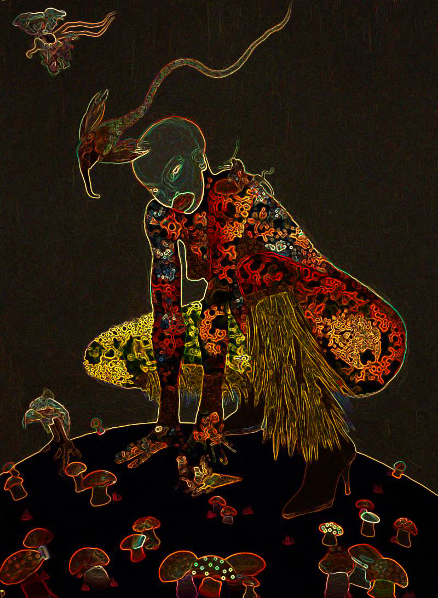 ENGL 279*: Black Science Fiction
ENGL 279*: Black Science Fiction
Tuesday, Thursday 9:25-10:40 a.m. CRN: 25481
Instructor: Nicole A. Waligora-Davis
This course explores the rich landscape of Black science and speculative fiction, where writers use imagination as a form of critique and creation. From Octavia Butler to N.K. Jemisin, Nnedi Okorafor to Victor LaValle, among others we examine how Black artists challenge the boundaries between reality and fantasy, reimagine histories shaped by slavery and colonialism, and confront the ongoing social and political inequities that define modern life. Topics include representations of the monstrous and the marvelous; environmental and technological crises; urbanization, gentrification, and migration; and the construction of alternative, more equitable futures. Ultimately, the course asks how Black speculative storytelling allows us to envision new worlds—and, in doing so, to see our own world differently.
Satisfies:
*D1
English major core requirement (ENGL): Diverse Traditions (Race, Postcolonial & Gender (RPG)
English minor core requirement (ENGM): Diverse Traditions (Race, Postcolonial & Gender (RPG)
English major specializations: Culture & Social Change (CSC); Literature & Literary History
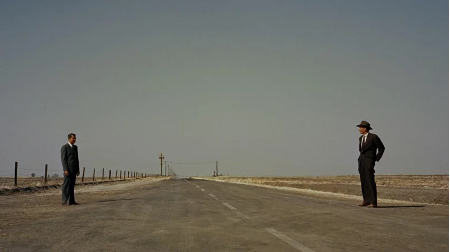 ENGL 286*: Classic & Contemporary Film (cross-list HART 286)
ENGL 286*: Classic & Contemporary Film (cross-list HART 286)
Tuesday, Thursday 4:00-5:15 p.m. CRN: 22814
Instructor: Edward Snow
In this course we’ll study ten of the very best films that have been made around the world since 1930 (we won’t attempt silent cinema). Our goal will be to develop a nuanced appreciation for what it is about film that allows us to engage with it so deeply when it’s at its best. Our focus will be on details and our writing will emphasize description. Assignments and class discussions will typically concentrate on short, key sequences, single frames, and highly visual motifs.
We’ll also be concerned with how “contemporary film” differs/departs from “classic film”, and with how sharp the divide is—if it exists at all. This distinction will be complicated by the ambiguity of “classic.” Does it mean “old” or “great”? Can a “contemporary” film be a “classic”? Can a “classic” film be “contemporary”? Anchoring these questions will be one certainty: what all the films we’ll watch in this class have in common is their brilliance.
P.S.: No prior expertise in film is necessary for immersion in this course. We’ll learn the nuts and bolts of film language as we proceed.
Satisfies:
*D1
English major specialization: Visual & Comparative Media (VCM)
 ENGL 300: Practices of Literary Study (2 sections offered)
ENGL 300: Practices of Literary Study (2 sections offered)
Monday, Wednesday, Friday 10:00-10:50 a.m.
Instructor: Ragini Tharoor Srinivasan
Monday, Wednesday, Friday 1:00-1:50 p.m.
Instructor: Betty Joseph
This course explores the relation of literary and other cultural texts to key concepts in literary and cultural theory. In their reading and writing, students engage a variety of theoretical problems and modes of reading, among them close textual analysis, critical attention to representation of the (racial, gendered, sexual, class) subject, and what it means to read a text’s relation to philosophical traditions, power relations, history, and empire. ENGL 300 is to be taken after ENGL 200, ideally in the spring of the sophomore or fall of the junior year. Course is open to all students.
Satisfies:
English major core requirement (ENGL): Theoretical Concepts & Methods
ENGL 301*: Intro to Fiction Writing (3 sections offered)
Tuesday, Thursday 9:25-10:40 a.m. CRN: 22344
Instructor: Andrea Bajani
Tuesday, Thursday 10:50 a.m.-12:05 p.m. CRN: 22421
Instructor: Andrea Bajani
Thursday 2:30-5:00 p.m. CRN: 25920 (new section added)
Instructor: Ian Schimmel
A course that teaches the fundamentals of fiction writing, and includes a mixture of reading and writing assignments. The goal is for each student to produce two short stories possessing imaginative ingenuity, structural integrity, and literary merit by the end of the semester. Course counts toward the English Creative Writing Concentration (ECRW). Registration for even-numbered sections is restricted to students who have declared the Creative Writing Major Concentration (ECRW) or Minor (CREW); registration for odd- numbered sections is open to all undergraduate students in priority order.
Satisfies:
*D1
English Creative Writing Concentration (ECRW)
Creative Writing Minor (CREW)
 ENGL 302: Screenwriting (2 sections offered)
ENGL 302: Screenwriting (2 sections offered)
Monday 4:00-6:30 p.m. CRN: 22033
Tuesday 4:00-6:30 p.m. CRN: 23565
Instructor: Amber Dermont
This course will introduce students to the art and craft of screenwriting through a focused study of terminology, formatting and cinematic technique. Assignments will include writing exercises, weekly viewing of films and reading of screenplays. Students will write their own treatments, outlines and full-length screenplays.
Course counts toward the English Creative Writing Major Concentration (ECRW) and the English Creative Writing Minor (CREW). Registration for even-numbered sections is restricted to students who have declared the Creative Writing Major Concentration (ECRW) or Creative Writing Minor (CREW); registration for odd-numbered sections is open to all undergraduate students in priority order.
Satisfies:
*D1
English Creative Writing Concentration (ECRW)
Creative Writing Minor (CREW)
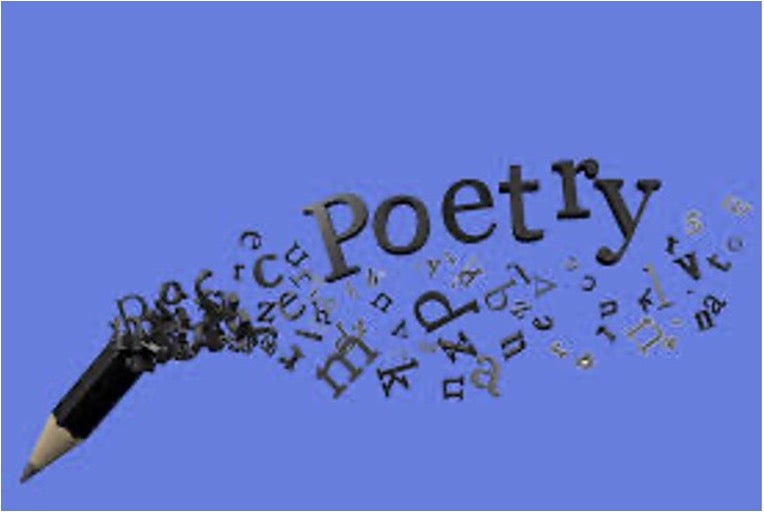 ENGL 304*: Intro to Poetry Writing (2 sections offered)
ENGL 304*: Intro to Poetry Writing (2 sections offered)
Wednesday 2:00-4:30 p.m. CRN: 22345
Instructor: Tomás Q. Morín
Friday 12:00-2:30 p.m. CRN: 24298
Instructor: Phillip B. Williams
An introduction to poetry writing through the study of contemporary poets and the writing of poems. The class will pay extensive attention to such elements of poetry as imagery, figurative language, tone, syntax, and form in order to create a vocabulary for students to discuss their own poems. Students' poems will be critiqued by the class in a workshop setting. Course counts toward the English Creative Writing Major Concentration (ECRW) and the English Creative Writing Minor (CREW). Registration for even-numbered sections is restricted to students who have declared the Creative Writing Major Concentration (ECRW) or Creative Writing Minor (CREW); registration for odd-numbered sections is open to all undergraduate students in priority order.
Satisfies:
*D1
English Creative Writing Concentration (ECRW)
Creative Writing Minor (CREW)
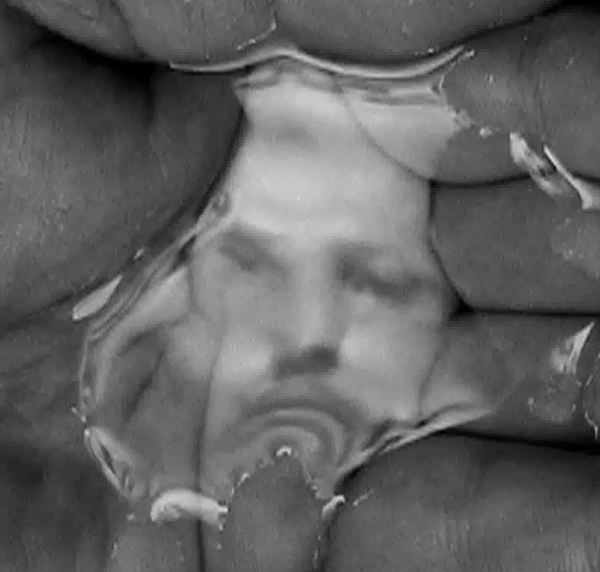 ENGL 305*: Introduction to Creative Non Fiction Writing (2 sections offered)
ENGL 305*: Introduction to Creative Non Fiction Writing (2 sections offered)
Wednesday 4:00-6:30 p.m. CRN: 23566
Friday 12:00-2:30 p.m. CRN: 24299
Instructor: Rosa Boshier González
Using some seed of "truth" as creative material, students will explore the spectrum of creative nonfiction, ranging from narrative journalism to memoir. Playing with form and narrative distance, among other literary techniques, students will map where their own lives collide with the truths they aim to tell. Course counts toward the English Creative Writing Major Concentration (ECRW) and the English Creative Writing Minor (CREW). Registration for even-numbered sections is restricted to students who have declared the Creative Writing Major Concentration (ECRW) or Creative Writing Minor (CREW); registration for odd-numbered sections is open to all undergraduate students in priority order.
Satisfies:
*D1
English Creative Writing Concentration (ECRW)
Creative Writing Minor (CREW)
 ENGL 306: AI Fictions
ENGL 306: AI Fictions
** This course has been postponed to next year **
Instructor: Ian Schimmel
In this studio course, we will experiment with the use of AI in fiction writing, examining the ethical, philosophical, and creative implications of AI-assisted storytelling. We will interrogate questions of authorship, originality, and literary tradition: How does AI reinforce or challenge established tropes? Can it enhance creative expression, or does it encourage formulaic, derivative narratives? What happens to our preconceived notions of voice, point-of-view, persona, authorial intent, and creative license when AI enters the writing process? And how should we - as writers, readers, scholars, and critics - evaluate stories that have relied on these generative tools? Open to all Rice students in priority order.
Satisfies:
English Creative Writing Concentration (ECRW)
Creative Writing Minor (CREW)
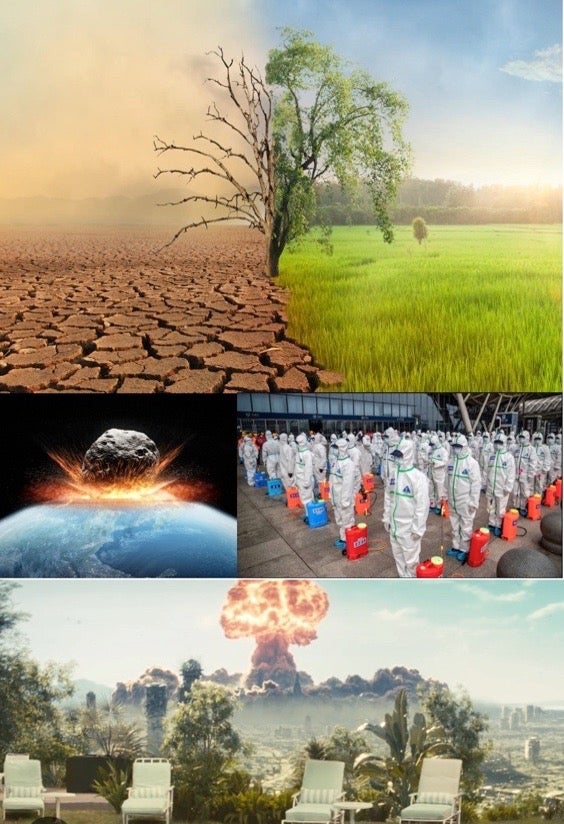 ENGL 306: The End of the World as We know it - Reading & Writing Apocalypse
ENGL 306: The End of the World as We know it - Reading & Writing Apocalypse
Monday 1:00-3:50 p.m. CRN: 22996
Instructor: Justin Cronin
A course in creative prose writing, in which students will be considering the social, psychological, and metaphysical underpinnings of apocalyptic literature while embarking on their own end-of-the-world writing projects. We will read several touchstone novels of the genre, watch a number of films, and generally contemplate the notion that we are, in the end, just another species, roaming the earth until we stop. Registration for even-numbered sections is restricted to students who have declared the Creative Writing Major Concentration (ECRW) or Creative Writing Minor (CREW); registration for odd-numbered sections is open to all undergraduate students in priority order. Course counts toward the English Creative Writing Major Concentration (ECRW) and the English Creative Writing Minor (CREW).
Satisfies:
English Creative Writing Concentration (ECRW)
Creative Writing Minor (CREW)
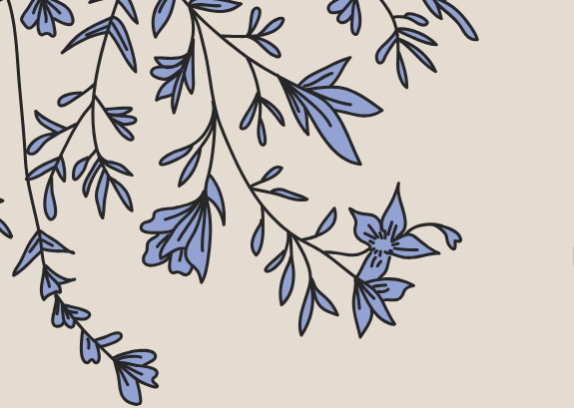 ENGL 307: Topics in Poetry Writing - Short Poems
ENGL 307: Topics in Poetry Writing - Short Poems
Thursday 1:00-3:30 p.m.
Instructor: Tomás Q. Morín
Explore the history of short poems and learn to write them yourself. Registration for even-numbered sections is restricted to students who have declared the Creative Writing Major concentration (ECRW) or Creative Writing minor (CREW); registration for odd-numbered sections is open to all undergraduate students in priority order.
Satisfies:
English Creative Writing Concentration (ECRW)
Creative Writing Minor (CREW)
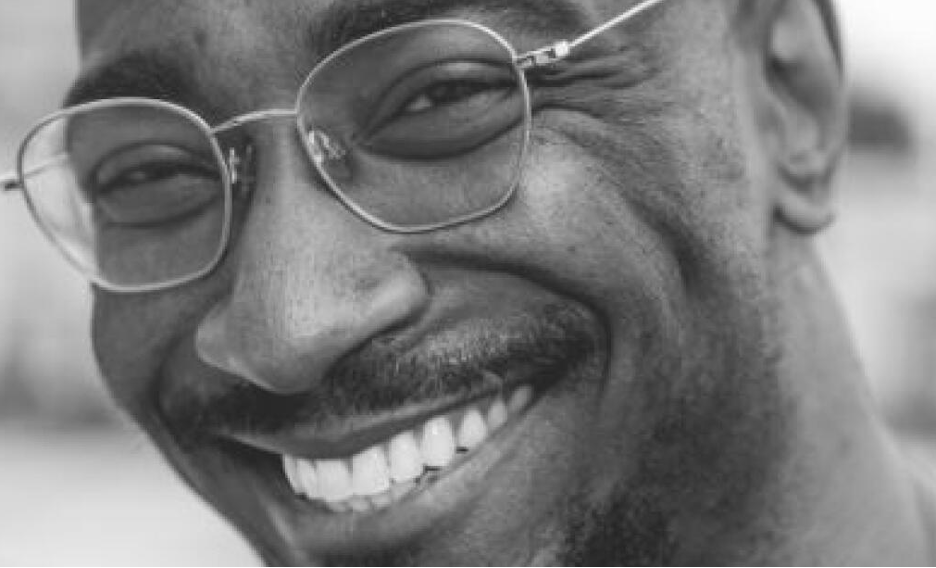 ENGL 307: Topics in Poetry Writing - Poetry of Trauma & Violence
ENGL 307: Topics in Poetry Writing - Poetry of Trauma & Violence
Monday 4:00-6:30 p.m.
Instructor: Phillip B. Williams
Students will read various poetry collections and critical essays that deal with different forms of trauma: homophobia, lynching, war, sexual abuse, colonization, and the overall idea of how to define “violence.” There will be time to discuss prosodic interests of our poets as well as discuss how content and form work together to create a seamless work. We will then turn to your work and analyze the how and why of our choices in a workshop setting. As trauma is our backdrop, students are expected to come to class prepared to speak with maturity and open-mindedness about many uncomfortable topics. Students will also keep a somatic journal of how your bodies react while reading and writing work that deals with difficult subject matter. Though student work does not have to explore the theme of the class, I do encourage students to take risks in their own poetry and critical analyses. Expect a rigorous reading schedule and creative as well as critical assignments. Registration for even-numbered sections is restricted to students who have declared the Creative Writing major concentration (ECRW) or Creative writing minor (CREW); registration for odd- numbered sections is open to all undergraduate students in priority order.
Satisfies:
English Creative Writing Concentration (ECRW)
Creative Writing Minor (CREW)
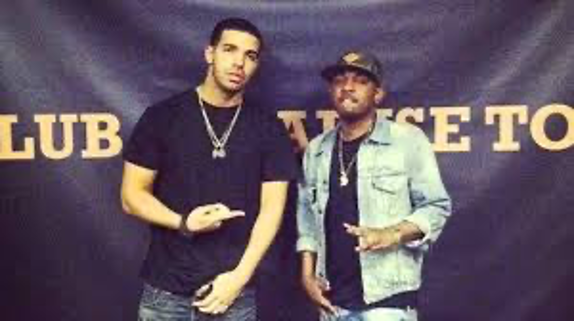 ENGL 309: Verses/Versus - Kendrick Lamar vs. Drake
ENGL 309: Verses/Versus - Kendrick Lamar vs. Drake
Wednesday 6:00-8:50 p.m.
Instructor: Kiese Laymon
In this course, we will consider the aesthetics of the "battle" between Kendrick Lamar and Drake. We will specifically contend with the ways style, gender, sexuality, age, place, and race contort the confessional in both artists leading up to "First Person Shooter" and "Like That". We will historicize this battle alongside some significant political and artistic battles of the 20th and 21st century. We will also consider the relationship between the way this battle played out and the brutal geo-political American-made catastrophes of the last few years. Registration for even-numbered sections is restricted to students who have declared the Creative Writing major concentration (ECRW) or Creative Writing minor (CREW); registration for odd-numbered sections is open to all undergraduate students in priority order.
Satisfies:
English Creative Writing Concentration (ECRW)
Creative Writing Minor (CREW)
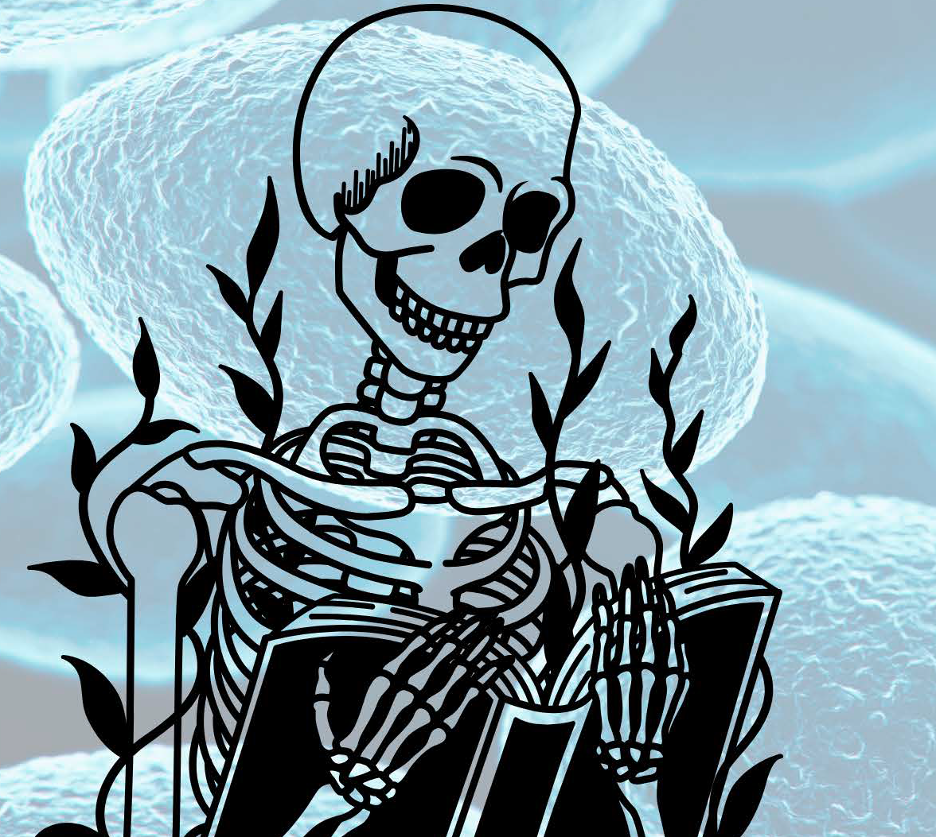 ENGL 312: Infectious Ideas
ENGL 312: Infectious Ideas
Tuesday, Thursday 9:25-10:40 a.m. CRN: 24303
Instructor: Emily Houlik-Ritchey
This class will explore the social and cultural worlds of disease and unwellness in the English Middle Ages, as evidenced by its literature. From leprosy to plague, from fits of madness to social anxiety, and from birth defects to lovesickness, we will interrogate what medieval folk considered to be legitimate risks to their health and wellbeing. This study will enable a better understanding of the ways that culture and society influence our understanding of medieval and illness, in the medieval period or any other.
Satisfies:
English major core requirement (ENGL): Historical Foundations - periods before 1800
English minor core requirement (ENGM): Historical Foundations - periods before 1800
English major specializations: Literature & Literary History (LLH); Science, Medicine, Engineering (SME)
 ENGL 313: Advanced Literary Editing & Publishing (via permission)
ENGL 313: Advanced Literary Editing & Publishing (via permission)
Tuesday 6:30-9:00 p.m. CRN: 25851
Instructor: Ian Schimmel
In this advanced and intensive editing and publishing practicum, students will serve as senior editors for Rice’s nationally award-winning undergraduate literary magazine, r2: The Rice Review. Section editors will be responsible for: reviewing and critiquing hundreds of unique contributor submissions; facilitating effective and comprehensive editorial discussions; finalizing a set of publishable pieces in literature’s three main genres; becoming proficient in all phases of copy-editing, including both global edits and line edits; communicating with and assisting contributing writers throughout the editorial process; assisting with art pairings and magazine layout using Adobe’s InDesign; and organizing for The Rice Review’s spring launch event. To deepen our understanding of publishing and publishing history, students will also participate in several interactive field trips. Past trips have included visits to the Houston Printing Museum, the University of Houston's Gulf Coast Magazine, the Star Wheel Press at Fondren’s Woodson Research Center, ZineFest Houston, and the Texas Book Festival in Austin. We will use these experiences - as well as assigned readings and discussions - to reflect on the various ways in which literature is defined and promoted, the changing landscape of the publishing industry more broadly, and how the work of The Rice Review participates in that rapidly evolving space. Permission of instructor is needed: Please email: ianschimmel@gmail.com to get an override in your ESTHER to register for this course.
Satisfies:
English Creative Writing Concentration (ECRW)
Creative Writing Minor (CREW)
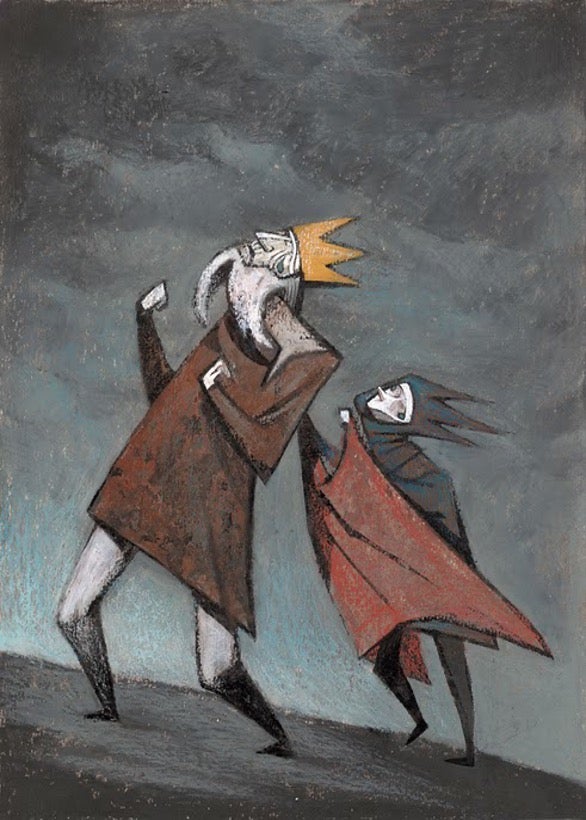 ENGL 321*: Shakespeare
ENGL 321*: Shakespeare
Tuesday, Thursday 4:00-5:15 p.m. CRN: 23569
Instructor: Benjamin Parris
This introductory survey covers a selection of Shakespeare’s plays over the course of his career, including comedies, histories, tragedies, and romances. We will learn how to read and think alongside Shakespeare about the topics that most concerned him: love, gender, ethics, authority, faith, race, capitalism, colonialism, and the nature of the good life. Course is open to all Rice students.
Satisfies:
*D1
English major core requirement (ENGL): Historical Foundations - periods before 1800
English minor core requirement (ENGM): Historical Foundations - periods before 1800
English major specialization: Literature & Literary History (LL
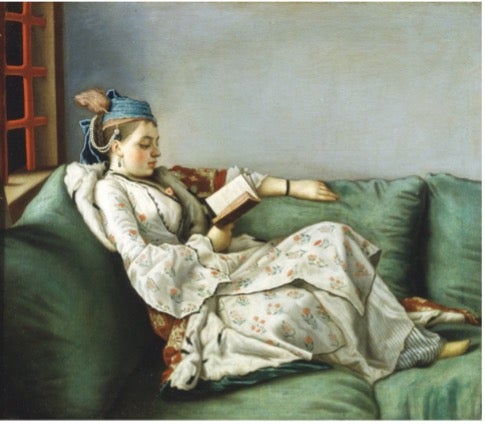 ENGL 332*: Literature of the British Enlightenment
ENGL 332*: Literature of the British Enlightenment
Monday, Wednesday, Friday 3:00-3:50 p.m. CRN: 25482
Instructor: Betty Joseph
Imagine a time when the availability of cheap paper and printed material brought about a cultural revolution, not unlike the radical transformations we experience as a result of electronic and digital technologies today.
How did literature seek to satisfy the growing desire of eighteenth-century readers for newness, whether they be exotic beings & places, the secrets of other people, the experience of personal freedoms, and bodily pleasures? How did private writing and public print give voice to new groups of people who were invisible in history?
Explore the Enlightenment period (1650-1800) that saw the emergence of popular narrative forms that flourish today: autobiography, travel narratives, science fiction, Gothic, and social realism. Why did drama and poetry of the time challenge existing classical norms by using non-elite characters, unconventional plots, and everyday language? All students welcome!
Satisfies:
*D1
English major core requirement (ENGL): Historical Foundations - periods before 1800
English minor core requirement (ENGM): Historical Foundations - periods before 1800
English major specialization: Literature & Literary History (LLH)
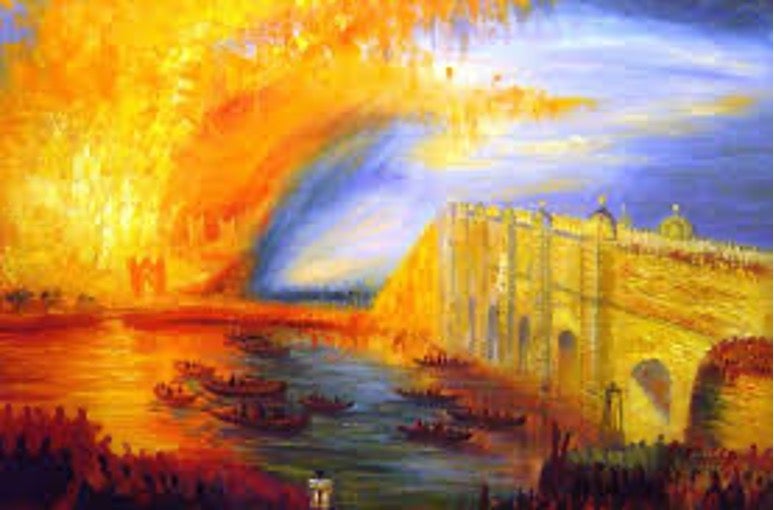 ENGL 341*: Victorian Literature & Culture
ENGL 341*: Victorian Literature & Culture
Tuesday, Thursday 10:50 a.m.-12:05 p.m. CRN: 23570
Instructor: Logan Browning
We will explore some of the preoccupations and controversies of the Victorian era in Britain (1837-1901) through a study of three key literary texts (Dickens’s Oliver Twist [1837-38], Alfred Tennyson’s In Memoriam [1850], and Oscar Wilde’s The Importance of Being Earnest [1895]) along with a variety of verbal and visual texts drawn from a wide range of sources. These associated texts will include journalism, history, caricature, advertising, book and magazine illustration, and political speeches. Topics for reading and discussion will include Victorian ideas about the city, social organization, gender and sexuality, public health, empire (especially including Anglo-Indian relations), technological change (particularly the coming of the railways), and evolutionary science
Satisfies:
*D1
English major core requirement (ENGL): Historical Foundations - periods before 1900
English minor core requirement (ENGM): Historical Foundations - periods before 1900
English major specialization: Culture & Social Change (CSC); Literature & Literary History (LLH)
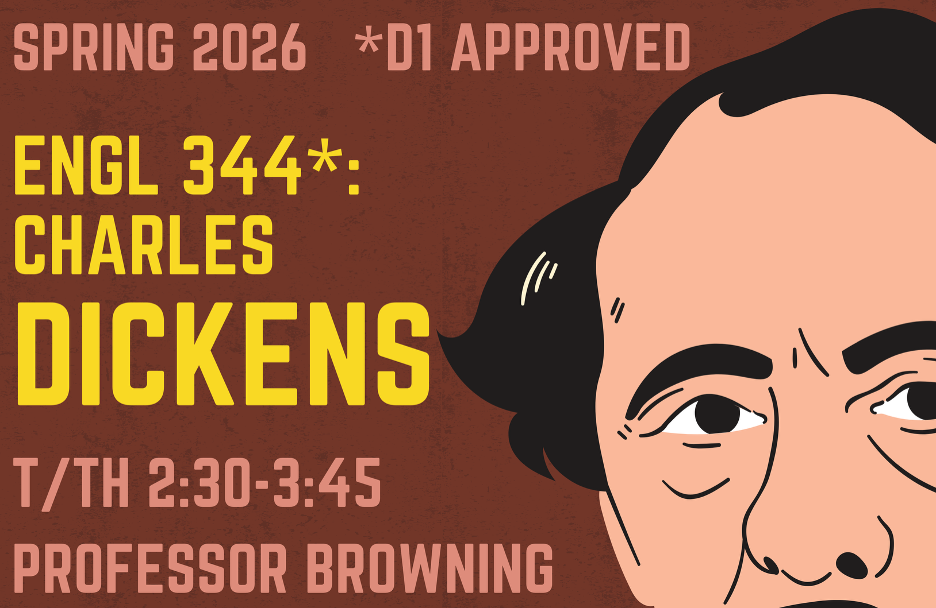 ENGL 344*: Dickens
ENGL 344*: Dickens
Tuesday, Thursday 2:30-3:45 p.m. CRN: 24306
Instructor: Logan Browning
How do we account for the extraordinary popularity and influence of Charles Dickens from his own time till now? How did he and how have his audiences assigned and extracted value from his writing and his life more generally? The course will focus on Dickens's journalism, novels, shorter fiction, and letters, as well as on visual and verbal adaptations of his work including Barbara Kingsolver’s recent novel Demon Copperhead. Readings will include selections of texts from throughout Dickens’s career such as Sketches by Boz, Oliver Twist, A Christmas Carol, David Copperfield, and A Tale of Two Cities. This course is open to all students.
Satisfies:
*D1
English major core requirement (ENGL): Historical Foundations - periods before 1900
English minor core requirement (ENGM): Historical Foundations - periods before 1900
English major specialization: Literature & Literary History (LLH)
 ENGL 358: Consumption & Consumerism
ENGL 358: Consumption & Consumerism
Monday, Wednesday, Friday 10:00-10:50 a.m. CRN: 24307
Instructor: Timothy Morton
An exploration of the history, philosophy and culture of eating, drinking, shopping and other forms of consuming. Featuring detailed analysis of literatures in English, visual art, music, film and food.
Satisfies:
English major specialization: Culture & Social Change (CSC)
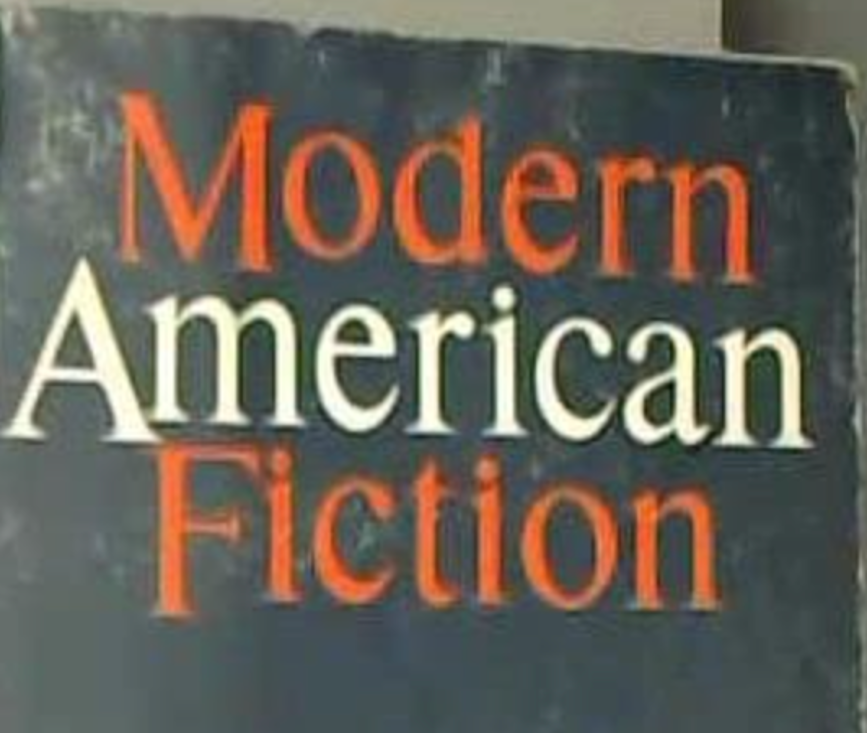 ENGL 362*: Modern American Fiction
ENGL 362*: Modern American Fiction
Monday, Wednesday, Friday 11:00-11:50 a.m.
Instructor: Scott Derrick
This course exams novels and short stories and films from the beginning of the twentieth century to 1960. It balances important, well-known texts of the period with diversities in terms of form, focus, and location. Course is approved for D1 and open to all students.
Satisfies:
D1
English major specializations: Culture & Social Change (CSC); Literature & Literary History (LLH)
 ENGL 368*: Literature & the Environment
ENGL 368*: Literature & the Environment
Tuesday 6:00-8:30 p.m. CRN: 25711 (1 class meeting per week)
Instructor: Matthew Schneider-Mayerson
A course that asks the question: How does literature express or shape environmental values? In this class we will read American fiction and nonfiction exploring the relationship between human and nonhuman nature. Cross-list: ENST 368.
Satisfies: *D1
English major specializations: Culture & Social Change (CSC); Science, Medicine & Engineering (SME)
 ENGL 372*: Asian American Literature
ENGL 372*: Asian American Literature
Tuesday, Thursday 8:00-9:15 a.m. CRN:24309
Instructor: Ashley Aye Aye Dun
A course that examines the various themes of the Asian American experience through literary and cultural forms. Special attention is given to the representational histories of Asian/American immigration, racial formation, and social movements. This course is open to all students and is approved for D1. No prerequisites. All welcome!
Satisfies:
*D1
Analyzing Diversity (AD)
English major core requirement (ENGL): Diverse Traditions (Race, Postcolonial & Gender/RPG)
English minor core requirement (ENGM): Diverse Traditions (Race, Postcolonial & Gender/RPG)
English major specializations: Culture & Social Change (CSC); Literature & Literary History (LLH)
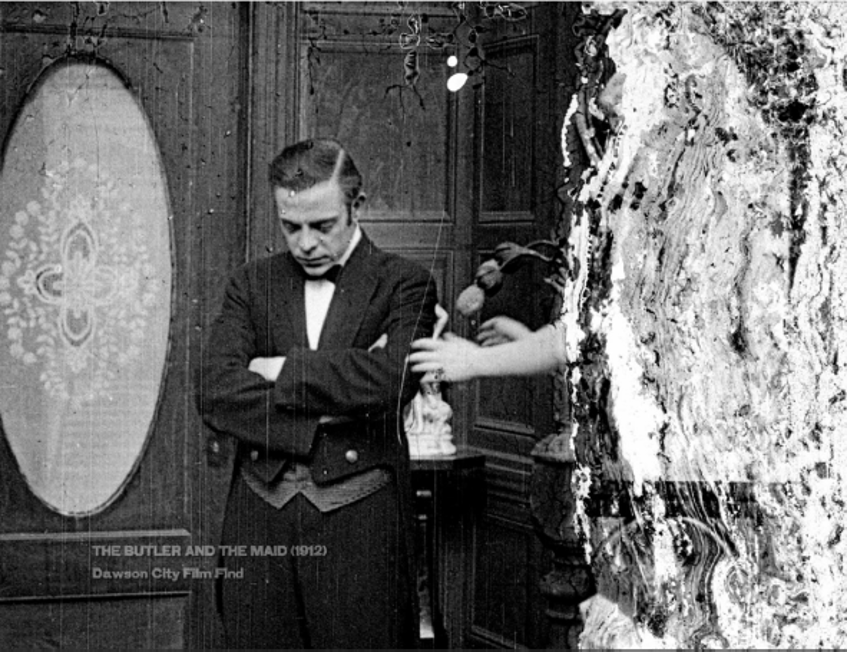 ENGL 373*: American Film & Culture - "The Laboring of the Spectacle" (cross-list FILM 373; HART 380)
ENGL 373*: American Film & Culture - "The Laboring of the Spectacle" (cross-list FILM 373; HART 380)
Tuesday, Thursday 2:30-3:45 p.m. CRN: 24309
Instructor: Clinton Williamson
This course will survey the long history of American cinema and its profound ability to shape the imaginary of its viewer. Attending to the cultural impacts and residues of filmic production, we will collectively track how the work performed by cinema and those who make it came to construct what Guy Debord famously termed the “society of the spectacle,” a mode of capitalist production and consumption mediated through images. This course has no prerequisites and is open to all students.
Satisfies:
*D1
English major specializations: Culture & Social Change (CSC); Visual & Comparative Media (VCM)
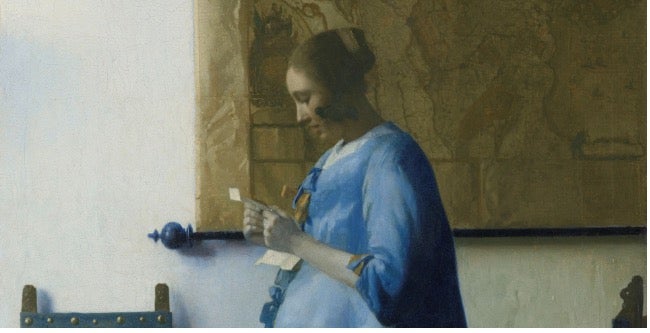 ENGL 377: Art and Literature
ENGL 377: Art and Literature
Tuesday, Thursday 1:00-2:15 p.m. CRN: 24310
Instructor: Edward Snow
In this course, we will spend time looking closely at a few things: paintings by Vermeer, Psycho by Alfred Hitchcock, some passages of prose from Cormac McCarthy, and a fantastically moving and complex “autobiographic graphic novel” by Charlotte Salomon, who was murdered at age 23 at Auschwitz. Our goal will be a detail-oriented attention in which thought and feeling intertwine. It will feel a little like Zen: we'll try to slow down, become patient, bring the right side of the brain into play. Course counts toward the English Creative Writing Major Concentration and English Creative Writing minor. Open to all students.
Satisfies:
English major specialization: Visual & Comparative Media (VCM)
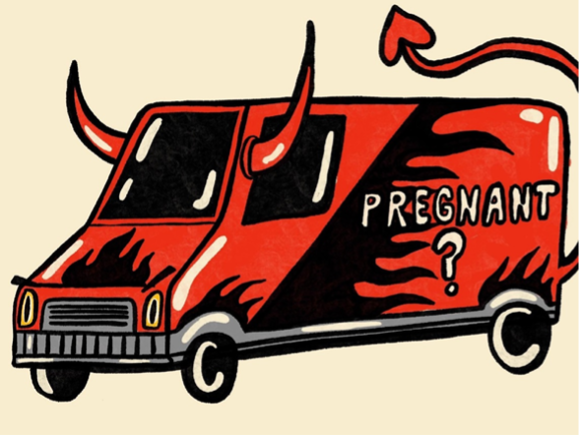
ENGL 378: Politics of Reproduction: Sex, Abortion, & Motherhood (cross-list MDHM 378)
Monday, Wednesday 2:00-3:15 p.m. CRN: 23777
Instructor: Carly Thomsen
Image: Devil Bus by Rayn Bumstead
Reproductive justice impacts EVERYONE! Birth control, sexual health education and sexual pleasure, foster care, abortion, giving birth, immigration, incarceration, environmental justice, care work, the medical system, aging parents—these social and cultural issues make clear that thinking with reproduction is crucial for understanding and upending the social order more broadly. Put another way, cultural ideas about reproduction shape how we experience and understand gender and sexuality and ideas about gender and sexuality influence how we view reproduction. As such, we cannot challenge dominant ideas about gender and sexuality without critical conversations about reproductive issues. Because requirements for being considered a “good” woman are so closely connected to what it means to be a “good” mother, any analysis of gender requires critical engagement with ideas about reproduction—even for those of us who plan to avoid parenthood or do not have heterosexual sex. This class focuses on the politics of reproduction in the twentieth and twenty-first centuries and the social relations that shape reproductive issues today, centering questions about race, class, ability, and geography throughout. Together, we will take on the paradoxes, horrors, complexities, and joys of reproduction.
Course texts include traditional academic articles as well as cultural texts such as film, theater, viral social media clips, and so on. For a final group project, students will create board games that can move the course ideas beyond our classroom. Open to all Rice students. No prerequisites required.
Satisfies:
English major core requirement (ENGL): Diverse Traditions (Race, Postcolonial & Gender/RPG)
English minor core requirement (ENGM): Diverse Traditions (Race, Postcolonial & Gender/RPG)
English major specializations: Culture & Social Change (CSC); Science; Medicine; Environment (SME)
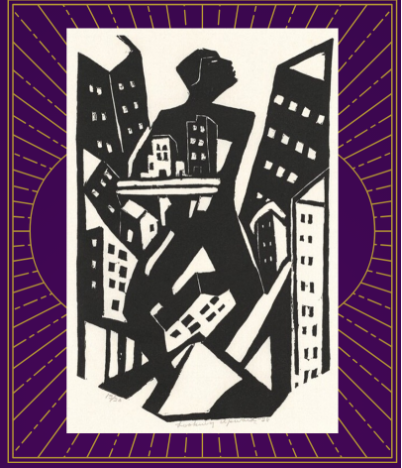 ENGL 393: Black Manhattan
ENGL 393: Black Manhattan
Monday, Wednesday, Friday 10:00-10:50 a.m. CRN: 25454
Instructor: Eve Dunbar
This course will explore the key figures, cultural events, and literary and cultural products that are remembered as part of the Harlem Renaissance. We will focus on the effects of WW1, the Depression, and segregation on black cultural expression. Course is open to all Rice students.
Satisfies:
English major core requirement (ENGL): Diverse Traditions
English minor core requirement (ENGM): Historical Foundations - periods before 1800
English major specialization: Literature & Literary History (LLH)
 ENGL 401: Advanced Fiction Writing
ENGL 401: Advanced Fiction Writing
Tuesday 1:00-3:50 p.m.
Wednesday 4:00-6:30 p.m.
Instructor: Justin Cronin
A course conducted mostly as a workshop for advanced fiction writers. It will include assigned writing exercises and weekly readings of published stories to deepen students' understanding of narrative technique. Depending on instructor, special topics may vary from semester to semester. Prerequisite is ENGL 301. Course counts toward the English Creative Writing Major Concentration (ECRW) and the English Creative Writing Minor (CREW). Course is repeatable for credit. Seating is limited and reserved for declared majors and minors.
Satisfies:
English Creative Writing Concentration (ECRW)
Creative Writing Minor (CREW)
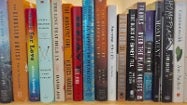 ENGL 402: Writing Longer Fiction - Narrative Design
ENGL 402: Writing Longer Fiction - Narrative Design
Monday 6:00-8:50 p.m.
Instructor: Kiese Laymon
A course in writing of longer narrative forms for advanced fiction writers. At the start of the semester, students will write a proposal for an original novel in the genre of their choosing and complete no fewer than 100 pages by the end. The class will be a mixture of discussion of assigned reading, workshop, and one-on-one tutorial. Course counts toward the English Creative Writing major concentration (ECRW) and the English Creative Writing Minor (CREW). Prerequisites: ENGL 301 or ENGL 306. Seating is limited and reserved for declared English major concentrators and minors.
Satisfies:
English Creative Writing Concentration (ECRW)
Creative Writing Minor (CREW)
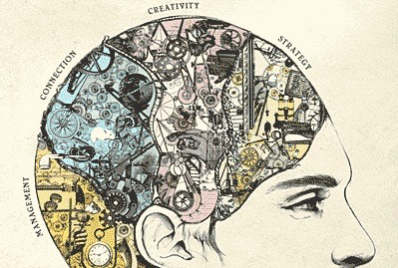 ENGL 405: Advanced Creative Nonfiction Writing - Memoir
ENGL 405: Advanced Creative Nonfiction Writing - Memoir
Wednesday 1:00-3:50 p.m.
Instructor: Lacy M. Johnson
An advanced reading and writing workshop for writers who have some familiarity with the nonfiction genre. Published works will be read as blueprints for the construction of student work. Course counts toward the English Creative Writing major concentration (ECRW). Prerequisite(s): ENGL 305 OR ENGL 309.
Satisfies:
English Creative Writing Concentration (ECRW)
Creative Writing Minor (CREW)
 ENGL 411: Research Workshop
ENGL 411: Research Workshop
Friday 1:00-3:50 p.m.
Instructor: Sarah Ellenzweig
Instructor: Lacy M. Johnson
Instructor: Helena Michie
Taught in the spring, the Research Workshop is the required of all senior English majors & creative writing concentrators. For students pursuing one of the areas of specialization, it follows from the fall Senior Seminar (ENGL 410). For creative writing concentrators, it builds on required advanced coursework in creative writing. In this course, students will complete and present their in-depth critical or creative project.
Enrollment limited to students with a semester level of Senior.
Enrollment is limited to students with a major in English.
Satisfies:
English Major (ENGL) & English Creative Writing Concentration (ECRW) graduation requirement.
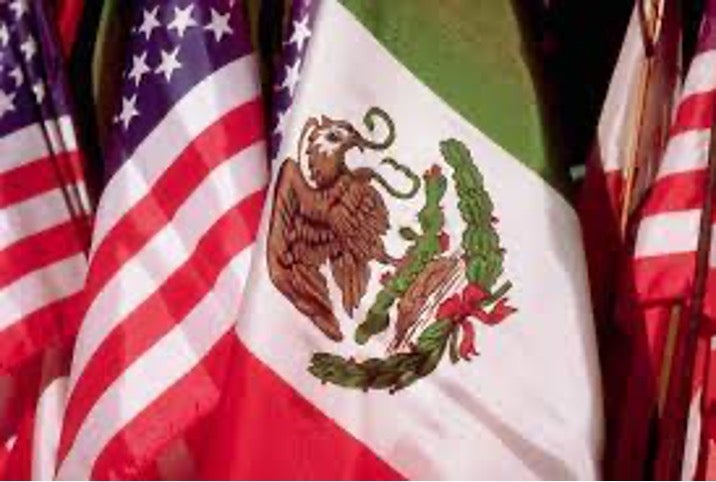 ENGL 471: Early American Writing and Print Workshop
ENGL 471: Early American Writing and Print Workshop
Monday 3:00-5:30 p.m. CRN: 24315
Instructor: José Aranda, Jr.
This course examines the first one hundred years of Mexican American literary and print production, from 1848 to 1948. It is a period of production when neither its writers nor its texts, and especially not its print culture, were considered productive for the nation-state of either the United States or Mexico. Through the lens of liberation philosophy, coupled with nineteenth-century Latinx literary criticism, settler-colonial criticism, and critical regionalism, this course explores the cultural, political, and intellectual dimensions that underwrote how and why writers and publishers of Mexican descent established a print culture against all odds. This course is cross-listed to SPAN 470.
Satisfies:
English major (ENGL) & English minor (ENGM) core requirement: Diverse Traditions-Critical Race,
Postcolonial & Gender Studies (RPG)
Specialization/s: Culture & Social Change (CSC) for English majors.
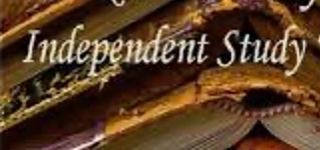 ENGL 493.000: Independent Study
ENGL 493.000: Independent Study
Spring meeting times are to be determined by an English faculty member and the student (via permission of instructor; credit variable 1-6)
A course designed for students who want to pursue intensive semester-long study of a particular topic. Students must identify and receive the approval of an English department faculty member and complete a special registration form as directed. Registration is by permission of instructor.
Satisfies: determined by the director of undergraduate studies
ENGL 493.002: Independent Study-R2/Editors-in-Chief
Tuesday 6:30-9:00 p.m.
>>Instructor: Ian Schimmel
ENGL 493.003: Independent Study-R2/Senior Section Editors
Tuesday 6:30-9:00 p.m.
>>Instructor: Ian Schimmel
Notes:
ENGL: English Major
ENGM: English Minor
CREW: English Creative Writing Minor
ECRW: English Creative Writing Concentration
*D1: approved for Distribution Group 1
AD: Analyzing Diversity
English Department Required Field/s satisfied:
Diverse Traditions: Race, Post-colonial & Gender (RPG)
Historical foundations: pre-1800/1900 (specifically as noted for pre-1800)
Meets Rice English major specialization/s:
Culture & Social Change (CSC)
Literature & Literary History (LLH)
Science; Medicine & Environment (SME)
Visual & Comparative Media (VCM)
Seating is limited in creative writing courses. Registration for even-numbered sections is restricted to students who have declared the Creative Writing Major Concentration (ECRW) or Creative Writing Minor (CREW). Registration for odd-numbered sections is open to all undergraduate students in priority order when space is available.

